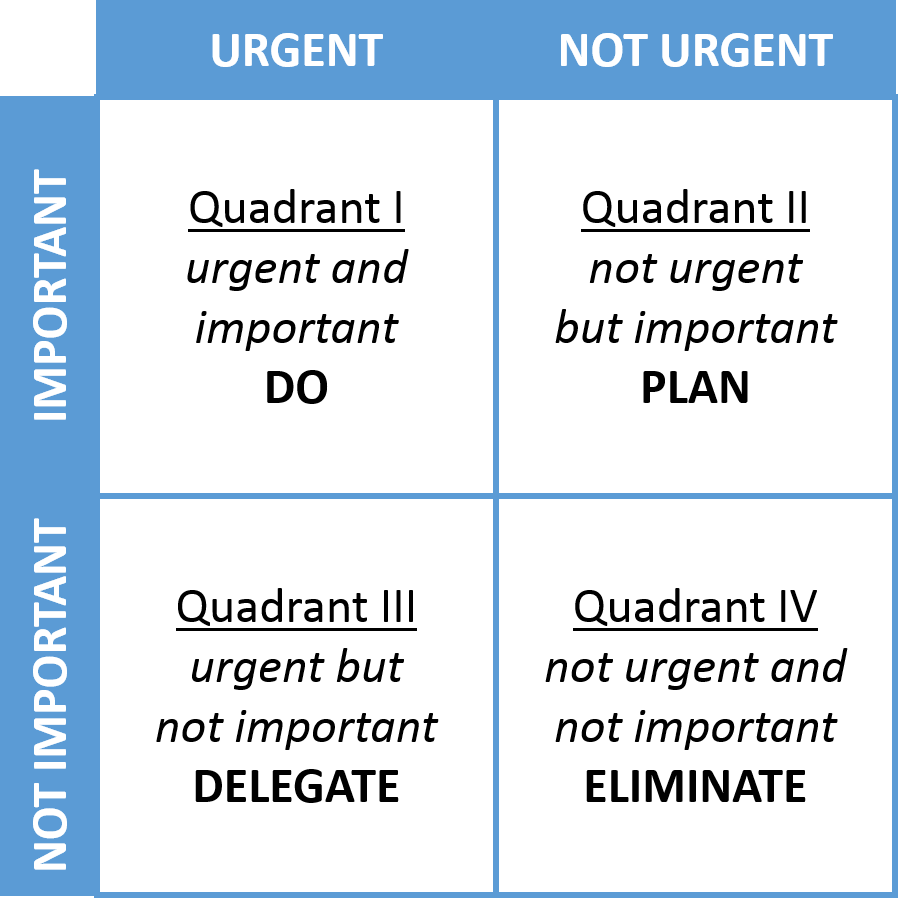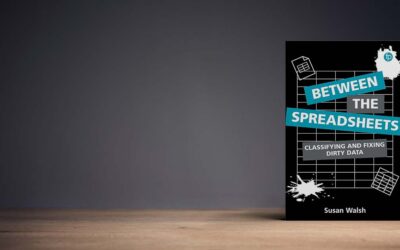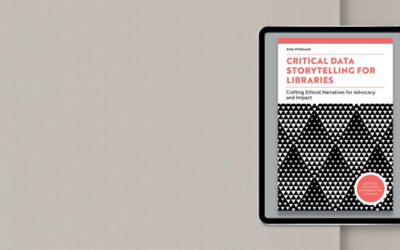The Value of Year-End Reflections
Lauren Hays
I have written before about the importance I place on reflective practice. In jobs that are always fast-paced, it is hard to find time to pause and reflect. However, taking the time to engage in reflection can be beneficial in numerous ways.
While reflection helps us to reset and focus on the top priorities, it can also help us recognize what we no longer need to be doing. As we approach the end of 2021, I encourage you to set aside time to engage in reflection.
A model I like to use for end of the year reflections is the Urgent/Important matrix that President Dwight D. Eisenhower used to organize his tasks. Stephen Covey brought this matrix to a wider audience in his book The 7 Habits of Highly Effective People. Below is an image of the matrix. President Eisenhower and Stephen Covey suggest placing tasks in each quadrant to determine what needs to be done, what you need to plan to do, what you can delegate, and what you can eliminate from your to do list.

Image licensed with a CC license that is available from: https://commons.wikimedia.org/wiki/File:7_habits_decision-making_matrix.png
Of course, items in the top left quadrant are often considered crises and must be dealt with as they arise. These can be hard to plan for; however, the more you spend in planning, delegating, and eliminating, hopefully fewer crises will arise.
Ideally, you want to spend most of your time in quadrant II. The tasks you place in this quadrant help to move your mission forward.
This matrix can be used in an individual context or with a team. In fact, I have seen it used very effectively in team discussions. In a collaborative discussion, individuals identify where they often find themselves working. From this conversation, tasks assigned to the team are shifted and organized so that each person is responsible for what makes the most sense for them.
Additional Resources
Coaching Tools 101: The Urgent Important Matrix
How to Master Your Priorities with the Urgent-Important Matrix
Lauren Hays
Lauren Hays, PhD, is an Assistant Professor of Instructional Technology at the University of Central Missouri, and a frequent speaker on topics related to libraries and librarianship. Her professional interests include information literacy, educational technology, library and information science education, teacher identity, and academic development. Please read Lauren’s other posts about skills for special librarians. And take a look at Lucidea’s powerful integrated library systems, SydneyEnterprise, and GeniePlus, used daily by innovative special librarians in libraries of all types, sizes and budgets.
Similar Posts
End-of-Calendar-Year Reflections for School Librarians
The end of the calendar year offers school librarians a chance to reflect on what’s working, make thoughtful adjustments, and plan for the year ahead.
Library Instruction: Learning Styles Are Out, Evidence-Based Practices Are In
For instructors and educators of all types, it’s vital to realize that evidence-based practices are more effective than catering to the myth of learning styles.
Interview with Susan Walsh:
Dirty Data, AI, and the 2nd Edition of “Between the Spreadsheets”
Author Susan Walsh discusses the new edition of “Between the Spreadsheets,” sharing insights on fixing dirty data, AI’s impact, and her COAT framework.
Interview with the Author:
Dr. Kate McDowell on Storytelling for Libraries
Dr. Kate McDowell shares how data storytelling helps libraries advocate, counter misinformation, and build trust for future generations.




Leave a Comment
Comments are reviewed and must adhere to our comments policy.
0 Comments